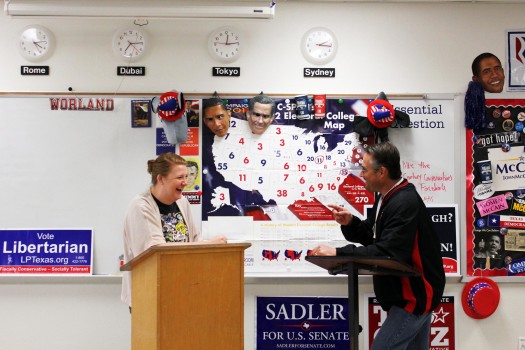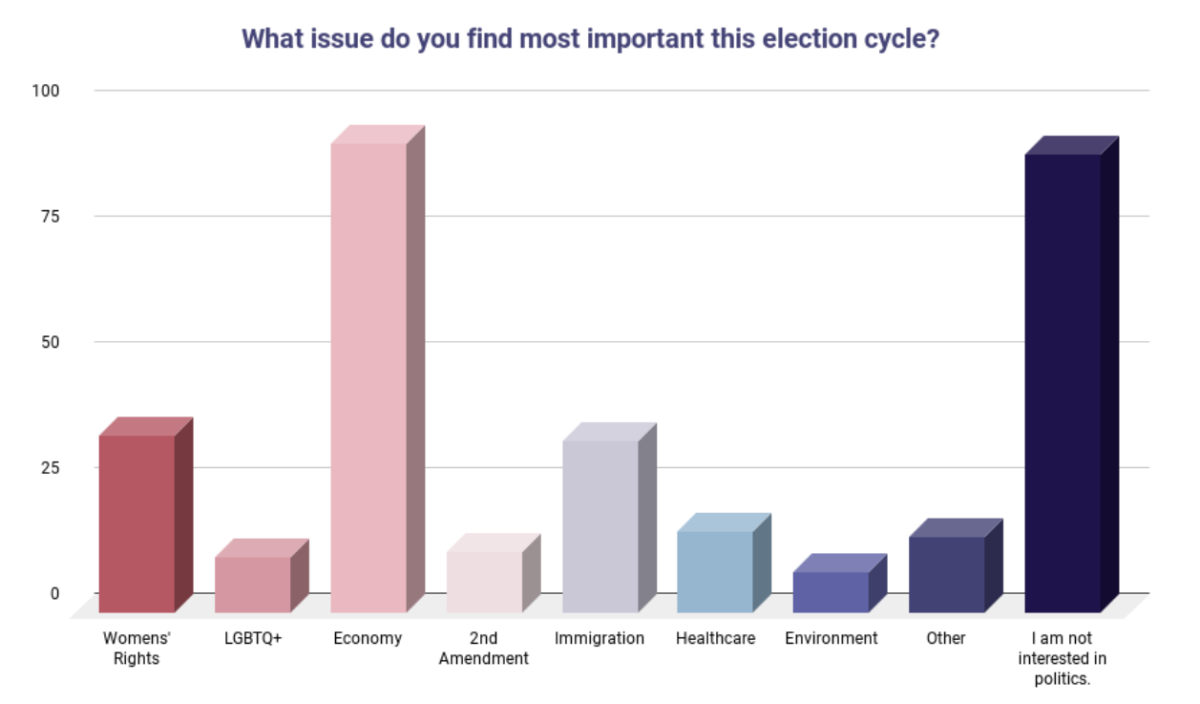Next year’s seniors will have the opportunity to take a combined 18-week AP Government and AP Macroeconomics course called “AP Civics.” The class integrates these two courses by splitting the group of approximately 70 students in half and sending one unit to Government and the other to Economics. The groups will alternate classes every other day. Then on Fridays, the students will come together into a blended class. Government teacher Emily Worland proposed the new course.
“It just made so much sense,” Worland said. “There’s so much interconnectivity between the two. Why not teach them together?”
Worland will be teaching the political science portion of the class and Economics teacher Mathew Stoeberl will be teaching the economics curriculum. The idea for the class formed when both teachers noticed that students taught first term in AP Economics would usually become Worland’s Government students the next term.
“We figured if we are swapping students anyways, instead of swapping at the end of the term, why don’t we swap them each week and kind of combine classes,” Stoeberl said.
Although the classes are assimilated, two AP tests – one Government and one Macroeconomics exam – still must be passed in order to gain college credit. Civics is only offered the fall semester so that both teachers have enough time to prepare students for the AP tests in May.
The school has never had a combined Government and Economics course before, but it has had other combined classes. Junior Meghan Hill plans on taking the class next semester because she is accustomed to a mixed class atmosphere.
“I took Humanities this year, which is AP English and U.S. History combined, and you learn a lot more because you’re able to talk about the two subjects simultaneously,” Hill said. “So I think the AP Civics class will have the same learning atmosphere.”
Due to the arrangement of the class, Worland said she will have to change some aspects of how she usually teaches Government.
“Giving up those Fridays kind of makes us lose maybe three or four days total, so we will kind of shorten a few things,” Worland said. “But other than that, it should actually enhance how we are teaching it.”
Stoeberl also said that having less class time will affect the way he teaches the course. With less class time dedicated solely to Economics, students will be expected to do more outside of class.
“That will be the downside,” Stoeberl said. “But I think students will be willing to do it in exchange for the benefits they are going to get.”
Both teachers said they intend to add a variety of new activities to the class. During the Fridays when both classes come together, students will spend time on a Public Policy issue like immigration, legalization of marijuana or healthcare. Students will examine both economic and political sides of the situation and come up with their own policies for the topics.
“I think people will be thinking really critically about true issues,” Worland said.
By incorporating these group activities, Stoeberl said, the class will allow students to analyze issues that are important to the country, which normally does not happen in a nine-week Economics course.
“You get to do issue analysis, you get to use your knowledge and you get to push yourself…” Stoeberl said. “That problem solving creativity is not only critical to the students’ development, but it’s also a heck of a lot more fun than listening to a lecture.”
By coming together into one large class on Fridays, Civics will be similar to bigger college classes, according to Worland. The class is also more analogous to college in that students switch classes every other day. Worland said she recommends taking Civics rather than separate courses.
Hill also said the combined course will be beneficial to students taking the AP tests. She said the alternating class schedule will be favorable to most students.
“With the organization of the class, I feel going every other day will provide enough change, and students won’t get tired of the class as easily as learning the same stuff every day,” Hill said.
Even though the class is new and some class time may be lost, Stoeberl said he does not see this class as a reason for AP test scores to drop.
“Both Mrs. Worland and I have loads of review materials,” Stoeberl said. “We do tutoring sessions, so I think even though we will be going a little faster, I still think students should expect good AP scores out of this class.”
Worland said she believes the class will be enjoyable. She said both she and Stoeberl love the fields they are teaching and will be able to engage students.
“I think the two of us together will be really dynamic, a lot of fun and interesting,” Worland said.










